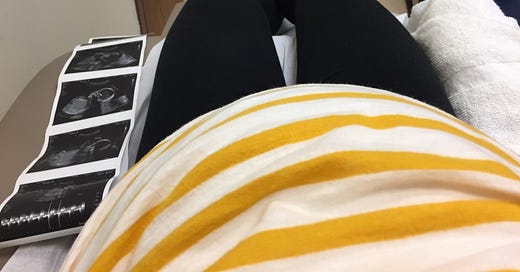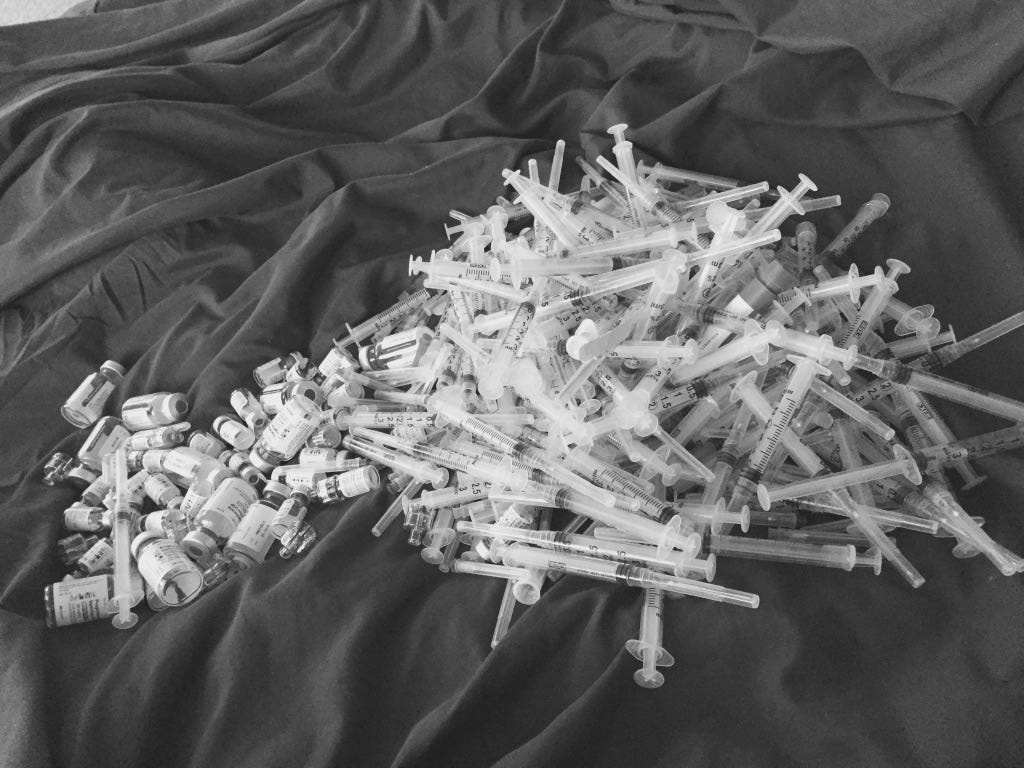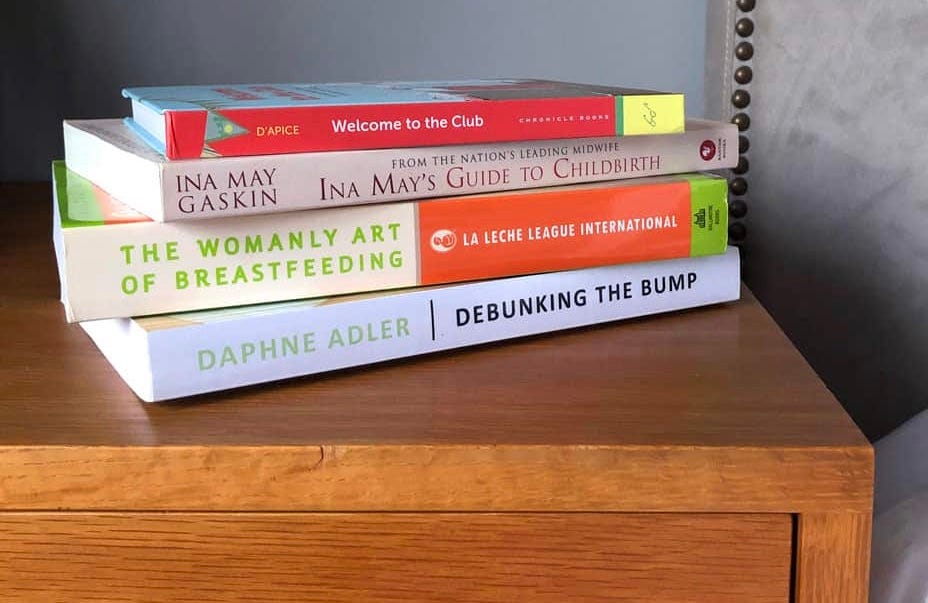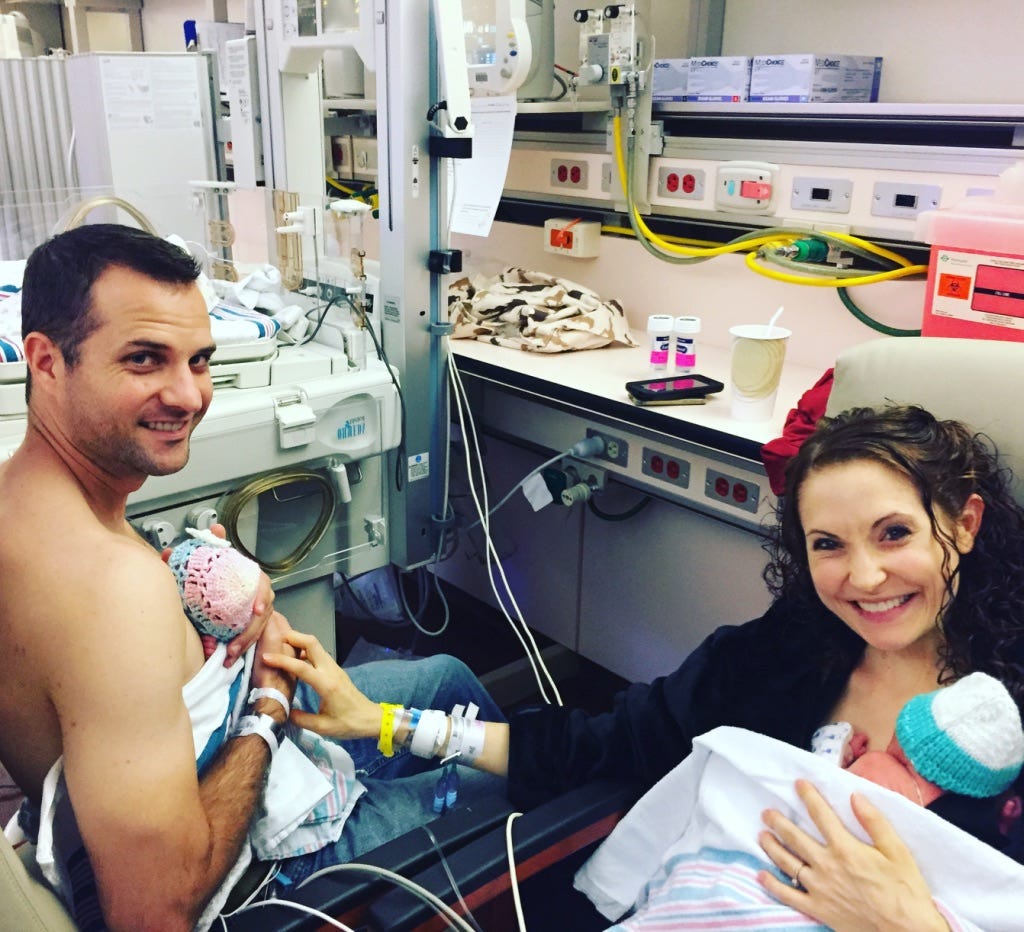On Monday, my twin tiny humans turned four years old. On the surface, their early childhood existence appears to look like what you would expect. They are full of wild imagination and curious innocence. My observations are on par with the kinds of things my books from graduate school taught me to expect about childhood development. Like most kids their age, they feel big feelings and can escalate in a flash because their little brains have no emotional brakes.
In many ways, my Reece and Grace are textbook four-year-olds. Their entrance into this world, however, was anything but. As it turns out, sometimes there isn’t a book that can prepare you for real life.
Having a baby is the most natural thing in the world. Until it’s not. My husband and I were part of the 1 in 8 couples who experiences infertility. This biological insult is a unique kind of invisible grief. Over the years, we accumulated mountains of glass vials that contained crazy-making medications. We gave carefully-time jabs in all kinds of curious places—weddings, airport bathrooms, and on the side of the road. I wore the stench of rubbing alcohol like perfume. My backside is still scarred from injections.
We spent several years trying unsuccessfully to time fertility treatments in between deployments. Baby-making logistics are particularly challenging when one person’s body doesn’t cooperate and the other party is gone for a year at a time. The most memorable treatment attempt occurred at 5:00 am the same day my husband deployed to Afghanistan for the second time. I told myself right away the procedure didn’t take so it wouldn’t hurt so much to shake my head “no” when I broke the news to him over FaceTime two weeks later. A year and half later IVF resulted in two heartbeats. My due date was December 23rd. I decided I would trust it when I had two Christmas babies in my arms.
I was fortunate to have an unremarkable first and second trimester. And then the tide turned. Fast. In September 2017, I moved from DC to California to join my husband who had started his new military assignment that summer. Within a week of my arrival, I began to experience complications. My first hospitalization took place on our babymoon-turned-traumatic-medical-nightmare to Hawaii. The second started shortly after we returned home. At 26 weeks, my membranes ruptured, and I started losing amniotic fluid. We went to the ER in the middle of the night. I was admitted to the hospital and informed that I wouldn’t be leaving until my babies were born. There was no hospital bag. No Instagramable last bump picture before we left the house. We didn’t even own cribs yet.
Upon my arrival, I was briefed by the neonatologist. He described talked through the long list of complications that could occur if the babies came too early. I went into a numb haze as I tried to take it all in. I started to live life in 12-hour segments, desperate for the babies to stay in. I knew that every day made a difference. For a month, I tried to be still. I listened to Christmas music on Pandora, watched the Pioneer Woman make soup, and called my mom to read Psalms when I was on the verge of losing my senses. Being a patient is hard, and I’m not very good at it. Complete dependence on others and being entirely stripped of control is a challenging cocktail to pound.
We made it to 31 weeks and four days. My curious Christmas babies could wait no more and decided they were ready to see the world. Their birth was tiding of joy but reads like a haunted Halloween nightmare. I don’t remember any details about the actual day I delivered, but by the time the evening OB was rounding I couldn’t keep mentally reframing my contractions as a “sore back.” Denial gave way to a frightening reality. The doctor did a quick check under my gown and everyone within earshot was informed, “We’re going. NOW!” This is where I begin to blur. I remember the icy pain of my IV. Clinging to my favorite nurse’s hand. Watching anesthesiologist place a mask over my face as I desperately implored, “please let my husband in the room.” I did not want to do this alone. And then my memories go black until the day I woke up on a ventilator in the ICU.
The scenes that unfolded in the time in between aren’t found anywhere in “What to Expect When You’re Expecting.” Despite my pleading, my babies entered this world while my husband waited alone in the next room. Reece and Grace were pulled from my body during an emergency c-section while I was fully sedated. My new tiny people were whisked into the NICU where they met their father for the first time. I was returned to recovery. When I came to, I immediately asked, “Are they okay?” “What are their APGAR scores?” Reece Xavier and Grace Constance were tiny but thriving. With a bit of oxygen and time to grow, they would be fine. No complications. I could rest. But first, I wanted to call my parents. Philip checked in with me briefly and went back to the tangle of cords, monitors, and machines in the NICU. In the midst of beeps and mayhem were our miracle babies. It wasn’t how anyone pictures the first minutes bonding with their infants, still—you drink the sweetness in.
Philip sat down to hold our son when a doctor informed him that something was wrong with me. They were worried about the amount of blood I was losing and needed to return me to surgery. Philip raced to find me in the hallway before I was rolled back into the OR. He needed to show me pictures of the kids. Something in his heart told him, “just in case.” A mom is supposed to see her babies after they are born.
For hours my husband sat in the NICU waiting. The medical team tried deserpately to stop my hemorrhaging and continued to transfuse my blood. They went through more than 25 units. The average adult body contains 10. Several hours into the operation, the doctor came out to discuss with Philip what was happening. My husband describes that he’s never seen a medical professional look so scared or shaken. “It doesn’t look good. Things aren’t going well. I’ve tried a lot of things and can’t stop the bleeding.” These are not the words you ever want to hear from someone performing surgery. “You need to prepare yourself. The last thing I can try is a hysterectomy – it’s our only shot. If it doesn’t work we will lose her. Can I proceed?”
Philip sat between two plastic boxes that held our three-pound babies and began to brace himself for leaving the hospital with two children and no wife. His mind went to logistics: “How does one feed two babies that don’t have a mom?” “Where will I bury Joy?”
My survival was the third miracle that night. When I finally woke up in the ICU it was like the scene from a movie: I was conscious but could not speak, blink, or move. But I was thirsty. So. Bloody. Thirsty. For a painfully long time, I could do nothing to get anyone’s attention. Finally, I was able to open my eyes. Then, a stir. Someone went to get Philip. He walked in the room looking hauntingly exhausted and deeply relieved. He explained to me what had happened. I was alive but would never carry another child. I was still on the ventilator and began scrawling notes on a piece of paper—my writing illegible. Later, after the hellacious process of coming off of the vent was complete, I looked at my husband through tear-filled eyes, smiled, and said in a faint, gravely voice, “It’s okay. This is why we got two babies.”
I underwent multiple blood transfusions in the days that followed. My body was ransacked and still struggling to recover. Eventually, I was released from the hospital and could finally sleep in my own bed. Later, my Reece and Grace joined me. After two months in the NICU, my babies were home for Christmas. The two heartbeats I saw on a screen in April were nestled in my arms. It was real—in some ways unbelievable, but true.
In life, we don’t choose our stories—sometimes our stories choose us. Then, we choose what we do with them. As a psychologist, I always have to do a fair amount of thoughtful of mental gymnastics when it comes to decision-making regarding public self-disclosure. I’m opting share my experience with you not to startle, jar, or scare but to spur you to reflect, consider, and appreciate.
We don’t talk a lot about infertility. Birth trauma is discussed even less. We definitely don’t talk about women dying during delivery, but serious complications—even in this day in age—are more common than you may expect. Horrible things didn’t just happen to women having babies on the Oregon Trail. According to the CDC, women in the United States are more likely to die from childbirth or pregnancy-related causes than other women in the developed world.
We often like to have books that contain instructions for how to prepare for things in our lives. Cookie-cutter checklists create an illusion of control. We want someone to tell us what to expect and chart a path we can follow—but life is unpredictable. It’s filled with invisible risk. We are promised little in this life but can count on eventually facing the unforeseen. We needn’t spend our days anxiously arrested in fear about what could potentially happen to us. That’s not living, and it won’t protect us from a single thing. It’s wise to prepare for our futures as best we can, but it behooves us to cling loosely to our carefully-laid plans. Flexibility is an underrated skill.
No blog post or book chapter could have prepared me for what my journey into motherhood would be. In our life stories, we don’t get to read ahead. It is probably for the best. People have a tendency to underestimate their ability to cope with future challenges. The person you are today isn’t the same person who will face adversity tomorrow. Down the road, regardless of what we may encounter, we are equipped with more experience and a different set of tools than we have right now. When it comes to enduring difficult things, humans often have a supernatural ability to rise to the occasion. We surmount and overcome. It behooves us to be more trusting of our future selves. Come what may, we can summon the strength we will need to respond. We find the footing we need to move through life crossing one bridge at a time.
From the start, the story of my children’s entry into the world was miraculous, perilous, traumatic, and incredible. As I look back, down, and around I am awed and deeply humbled. Against the odds, I got to stay alive. So I try my best to soak it all in. Reece and Grace were marked by resilience from the very beginning – it’s an indelible part of who they are. It’s part of who I’ve become.
Ours is a story of survival. Amazing Grace. When you’ve been to the brink and back like that, something powerful switches inside of you. There is a fierce intention I bring to living on borrowed time. I don’t mess around. It was true before the big scary birthday party went down, but I notice it even more so now.
We are promised nothing beyond today, so we best make the moments we are given count.
These are my bonus rounds.
Each year in lieu of gifts we request that people donate blood, or, if circumstances allow, breastmilk to a local NICU, to celebrate our family’s miraculous story. My babies have a mom because a LOT of people donated a LOT of blood. None of the individuals who took a bit of time out of their day to donate realized the life-changing impact they had on our family’s trajectory – but they each participated in permanently altering our story. You can make this kind of a difference, too.
If you liked this post, spread the joy and share it with someone else!
If you’re interested in more strategies for managing stress, raising your EQ, and strengthening self-awareness, don’t miss Finding Joy:
For more of my musings on love, life, and work, you can follow me on Twitter, IG, and Linked In.








